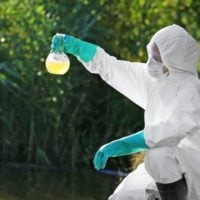Deadline: 06-Oct-21
The European Commission is now accepting proposals for its Optimisation of Nutrient Budget in Agriculture Programme.
Scope
- Sustainable agricultural production systems not only deliver nutritious food and other raw materials, they are also key drivers of economic growth in rural areas. Roughly 25% of the annually produced terrestrial agricultural biomass is used by humans, about 70% (mostly from grassland, by-products, and inedible crop residues) converted through animals into food and manure, and the remainder goes into biofuel.
- Unsustainable agricultural systems can cause a variety of adverse environmental effects, such as climate change, loss of biodiversity, and air and water pollution due to poor management of nutrients.
- When possible, the holistic consideration of plant and animal nutrition within the agricultural production systems could contribute to more sustainability of the food chain by promoting the minimization of nutrients leakage and improved nutritional values of fertilisers, feed and food.
- This approach could cover the basic nutritional elements (carbon, hydrogen, nitrogen, oxygen), the macro elements (phosphorous, potassium, magnesium, calcium, sulphur) but also the trace elements (zinc, copper, iron, iodine, selenium, manganese).
- In line with the European Green Deal, the development of a nutrient budgeting approach could focus on the fluxes of carbon (C).
Funding Information
Grant amount is equal to or greater than EUR 500 000 except for:
- public bodies (entities established as a public body under national law, including local, regional or national authorities) or international organisations; and
- cases where the individual requested grant amount is not more than EUR 60 000 (lowvalue grant).
Expected Outcomes
Project results are expected to contribute to all following expected outcomes:
- Improve nutrient budget and flows by identification of optimal combinations of nutrients in different farming systems (conventional, agro-ecological and organic systems) following, when possible, a holistic approach of the plant and animal productions system.
- New approaches and methods supported with sound indicators to monitor and measure nutrients flows and practices with the greatest climate change mitigation potential and water and nutrient leakages, and biodiversity preservation while ensuring economic farm viability.
- Identification and targeted implementation of individual or combined region-specific agricultural practices that help balance nutrient cycles and Nature Based Solutions for plant and animal nutrition and health optimizing the use of external inputs and implementation of regulated deficit strategies.
- Quantification of the potential to save particularly N and P emissions from the implementation of relevant individual or combined agriculture practices, e.g. organic agriculture, agro-ecology, conservation agriculture, improve organic and mineral fertilization management, etc., that enhance soils health and combat eutrophication and water pollution.
- Improved nutrient budget at different scales, by sound quantification of the inputs and outputs of water and nutrients in different agricultural systems including quantitative environmental and economic indicators for farms, regions and/or products.
- Enhanced models to identify contamination and pollution hotspots locally, to extrapolate to regional, national and global solutions.
- Strengthened transdisciplinary and interdisciplinary research and integrated scientific support for relevant EU policies and priorities (common agricultural policy (CAP), Green Deal, the zero pollution action plan, the farm to fork, etc.).
Eligibility Criteria
- Any legal entity, regardless of its place of establishment, including legal entities from non-associated third countries or international organisations (including international European research organisations) is eligible to participate (whether it is eligible for funding or not), provided that the conditions laid down in the Horizon Europe Regulation have been met, along with any other conditions laid down in the specific call topic.
- A ‘legal entity’ means any natural or legal person created and recognised as such under national law, EU law or international law, which has legal personality and which may, acting in its own name, exercise rights and be subject to obligations, or an entity without legal personality.
- To be eligible for funding, applicants must be established in one of the eligible countries, i.e:
- the Member States of the European Union, including their outermost regions;
- the Overseas Countries and Territories (OCTs) linked to the Member States;
- eligible non-EU countries:
- countries associated to Horizon Europe
- low- and middle-income countries
For more information, visit https://bit.ly/3xkrswN






![Call for Applications: “Voices in Motion” Program [Sri Lanka] - fundsforNGOs Call for Applications: “Voices in Motion” Program [Sri Lanka]](https://www2.fundsforngos.org/wp-content/uploads/2023/04/dance-200x200.jpg)


































